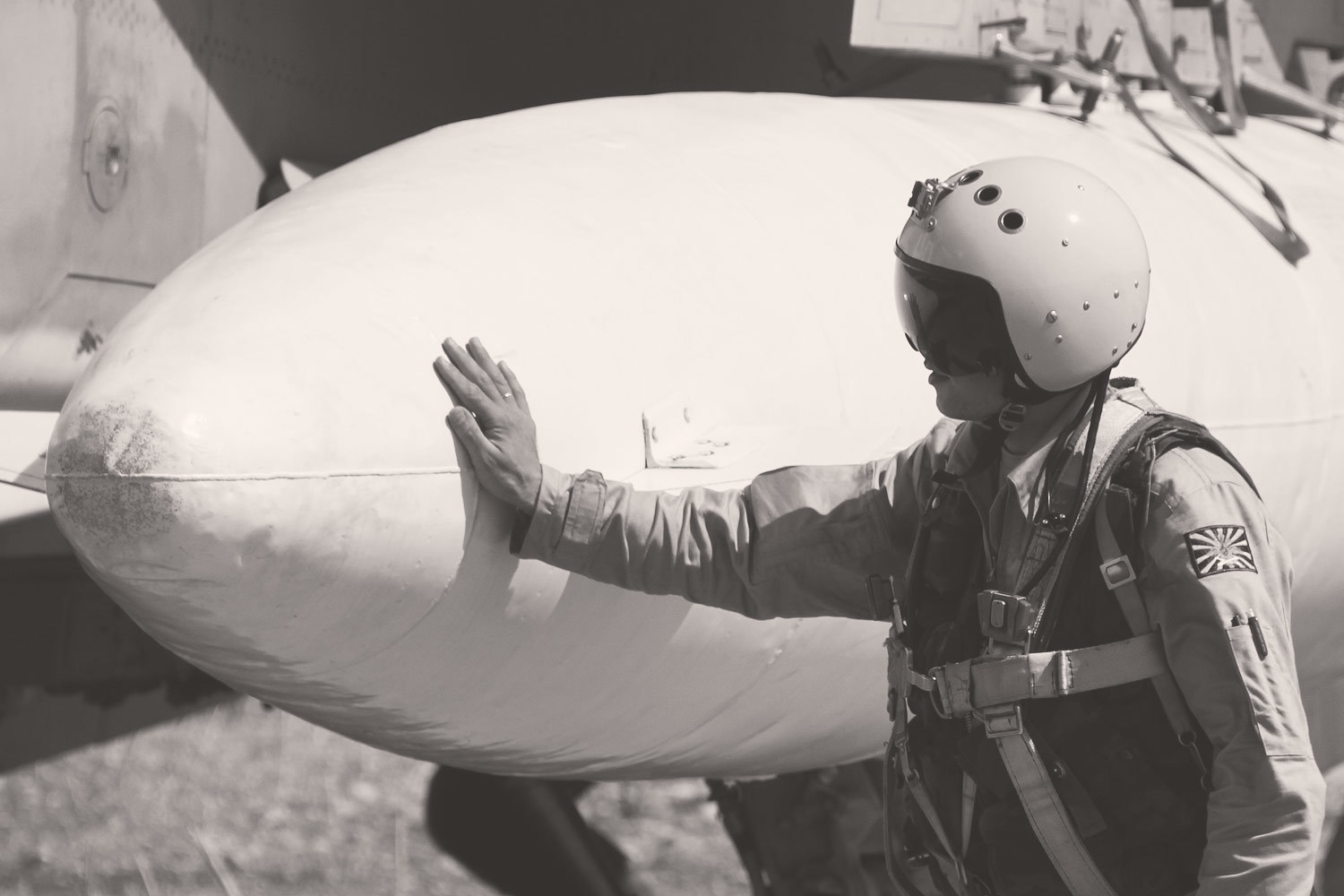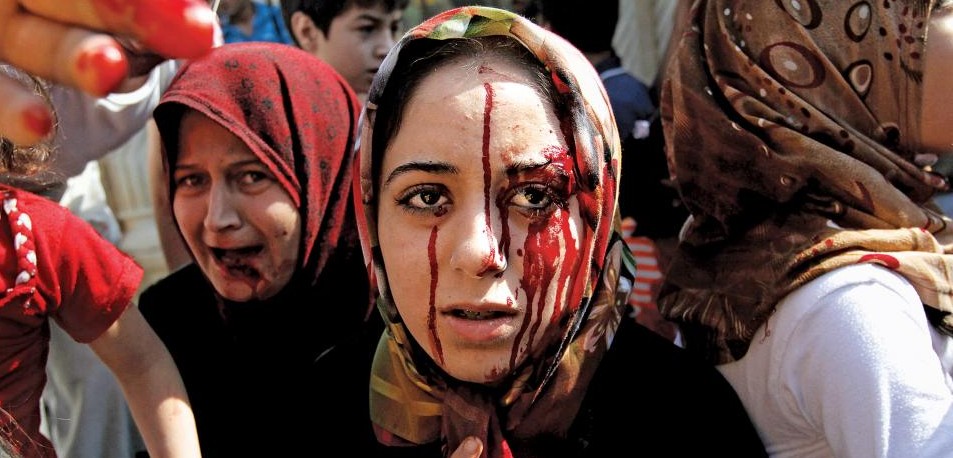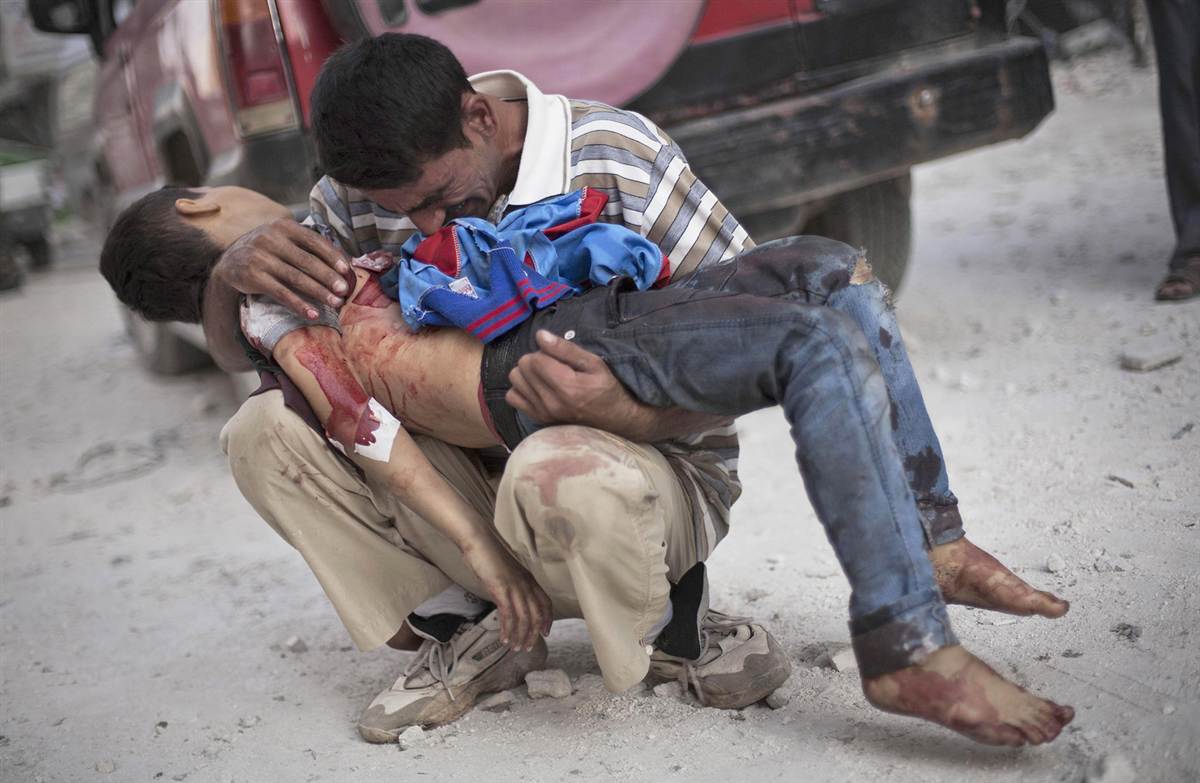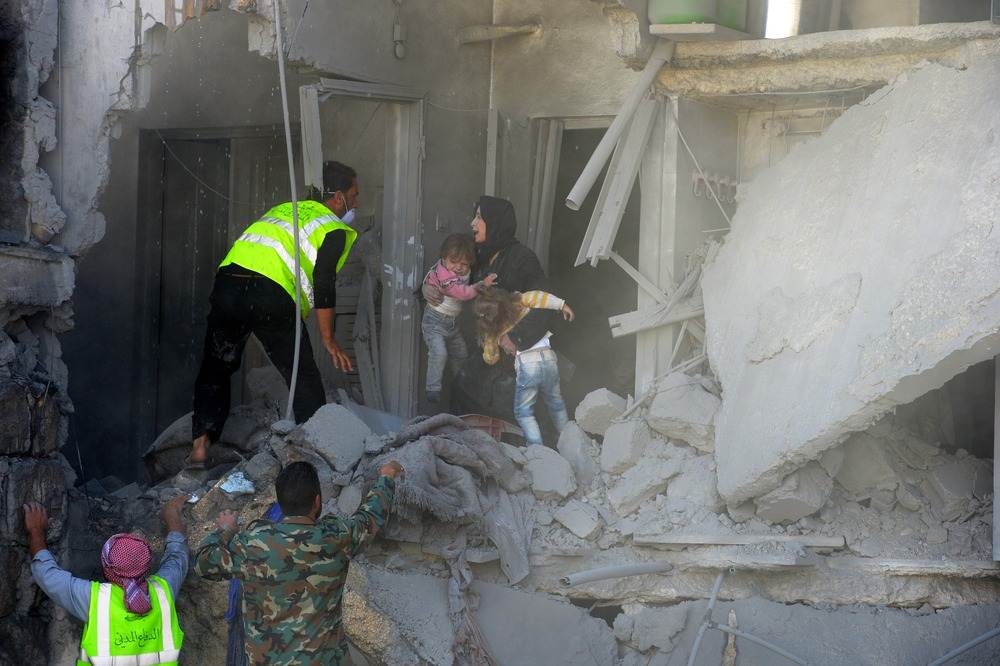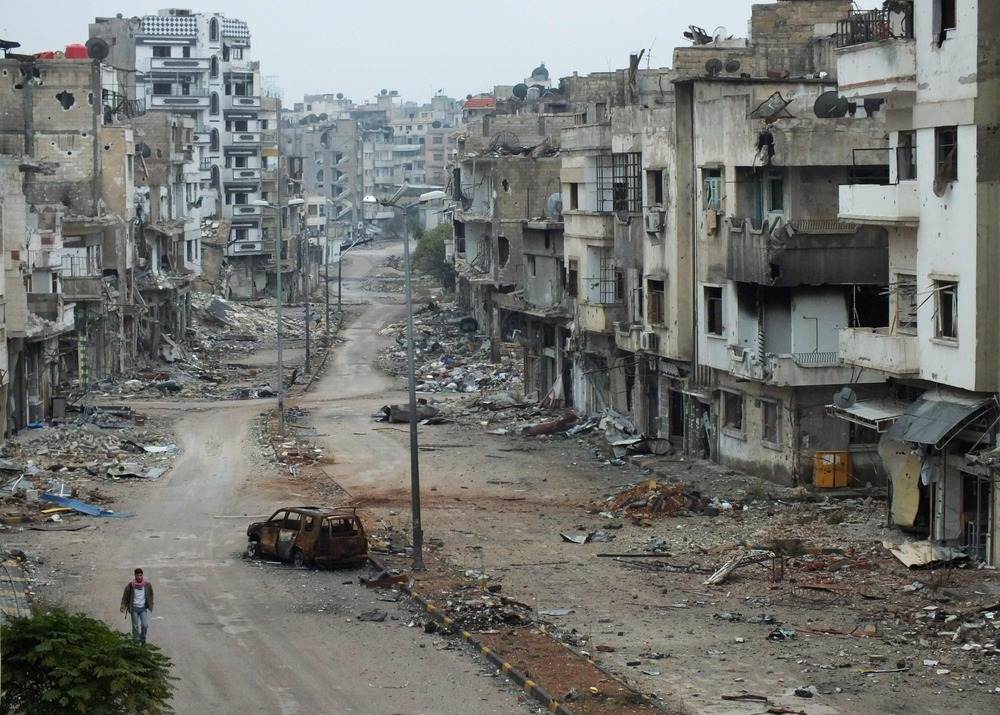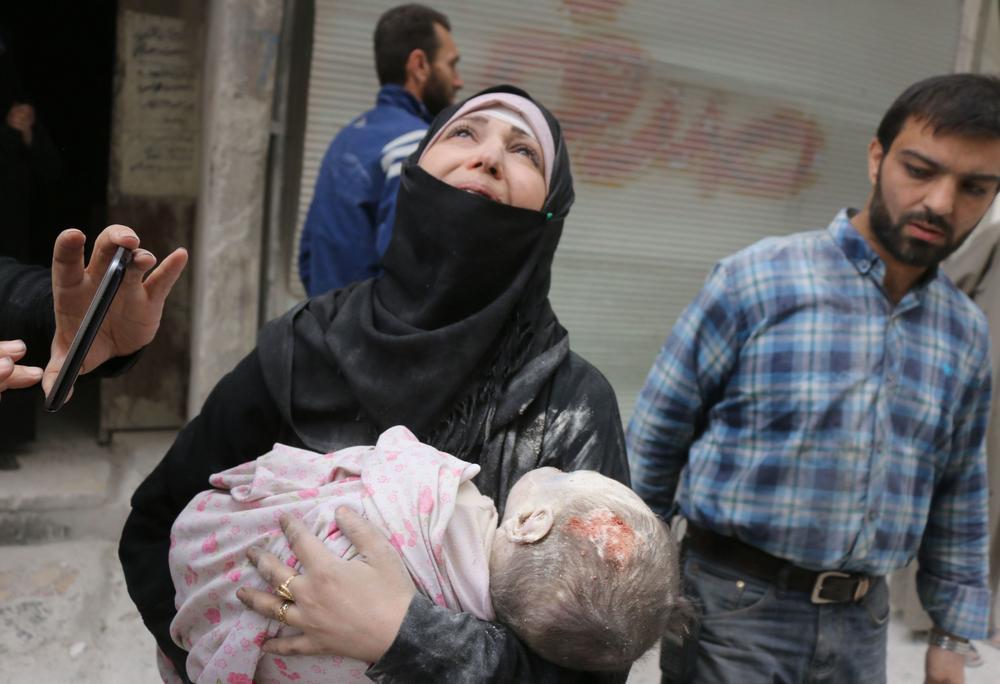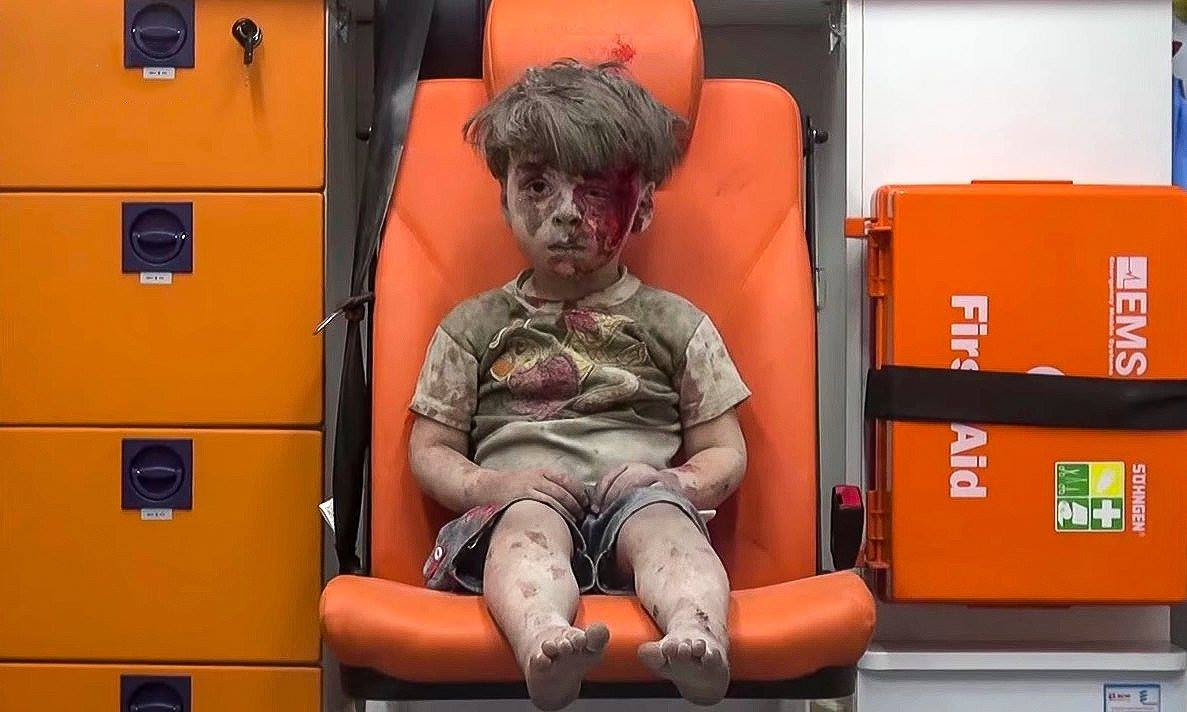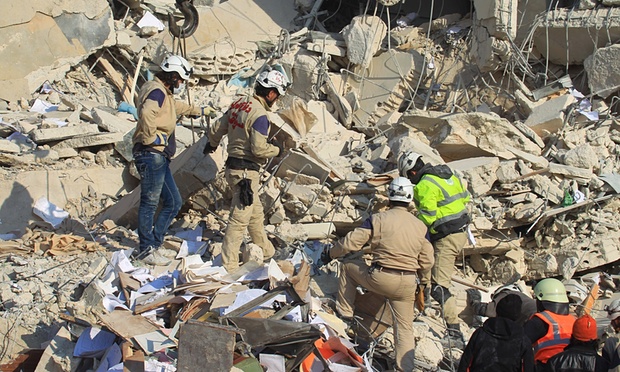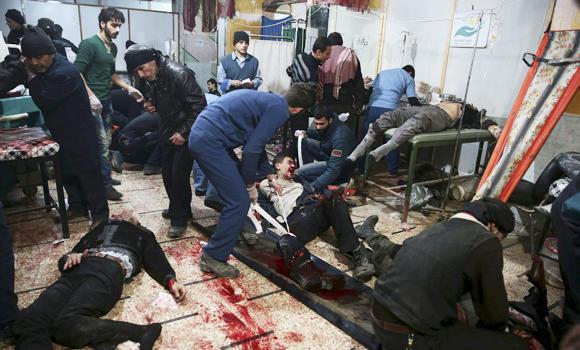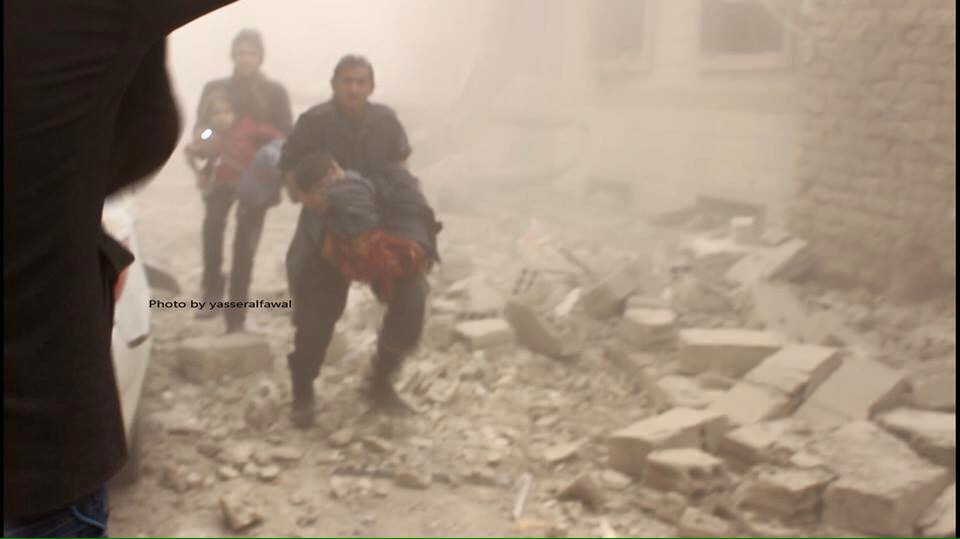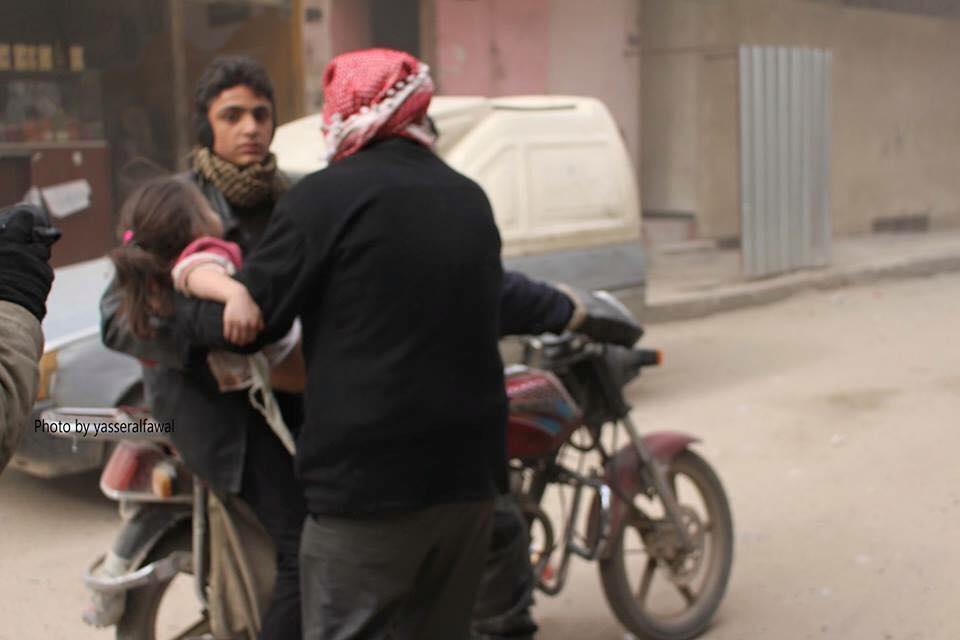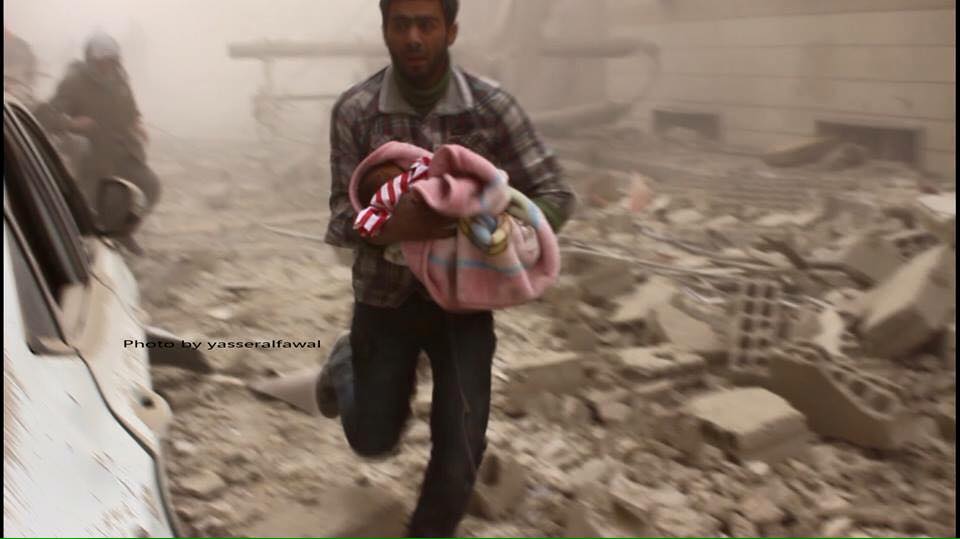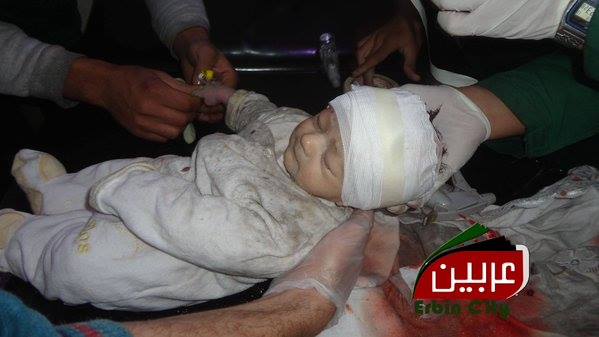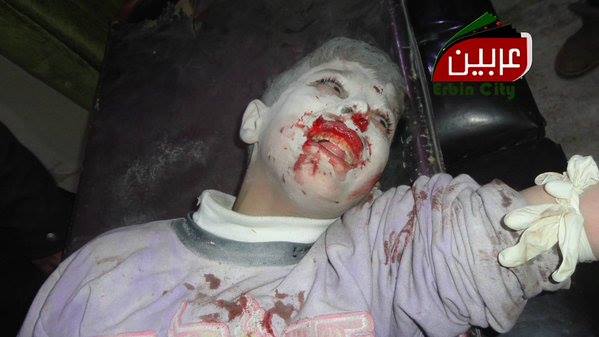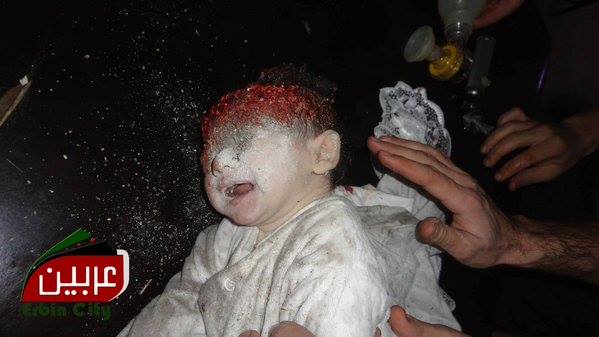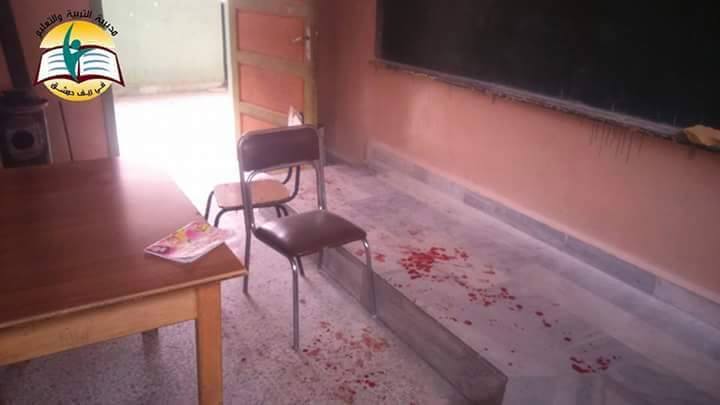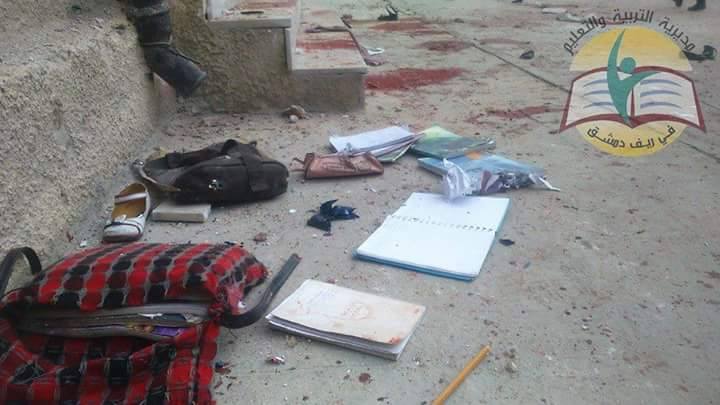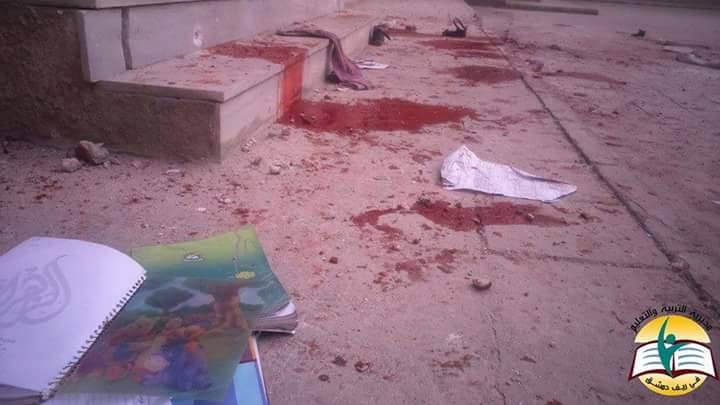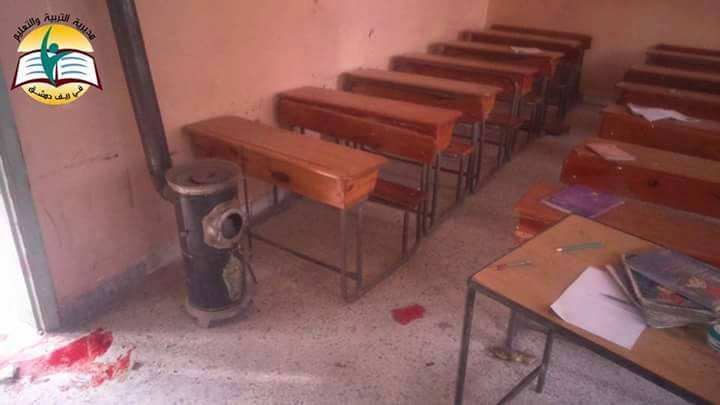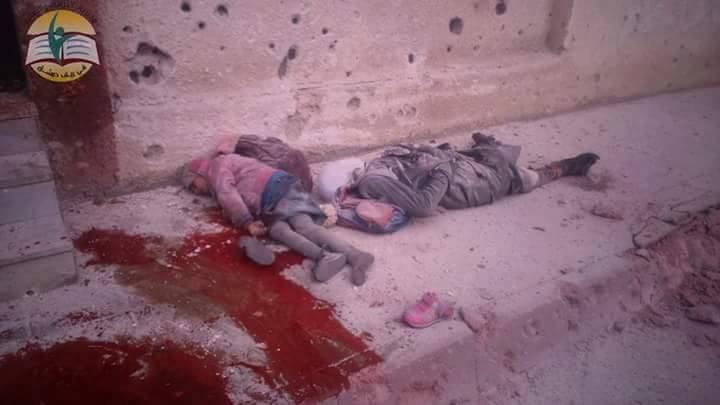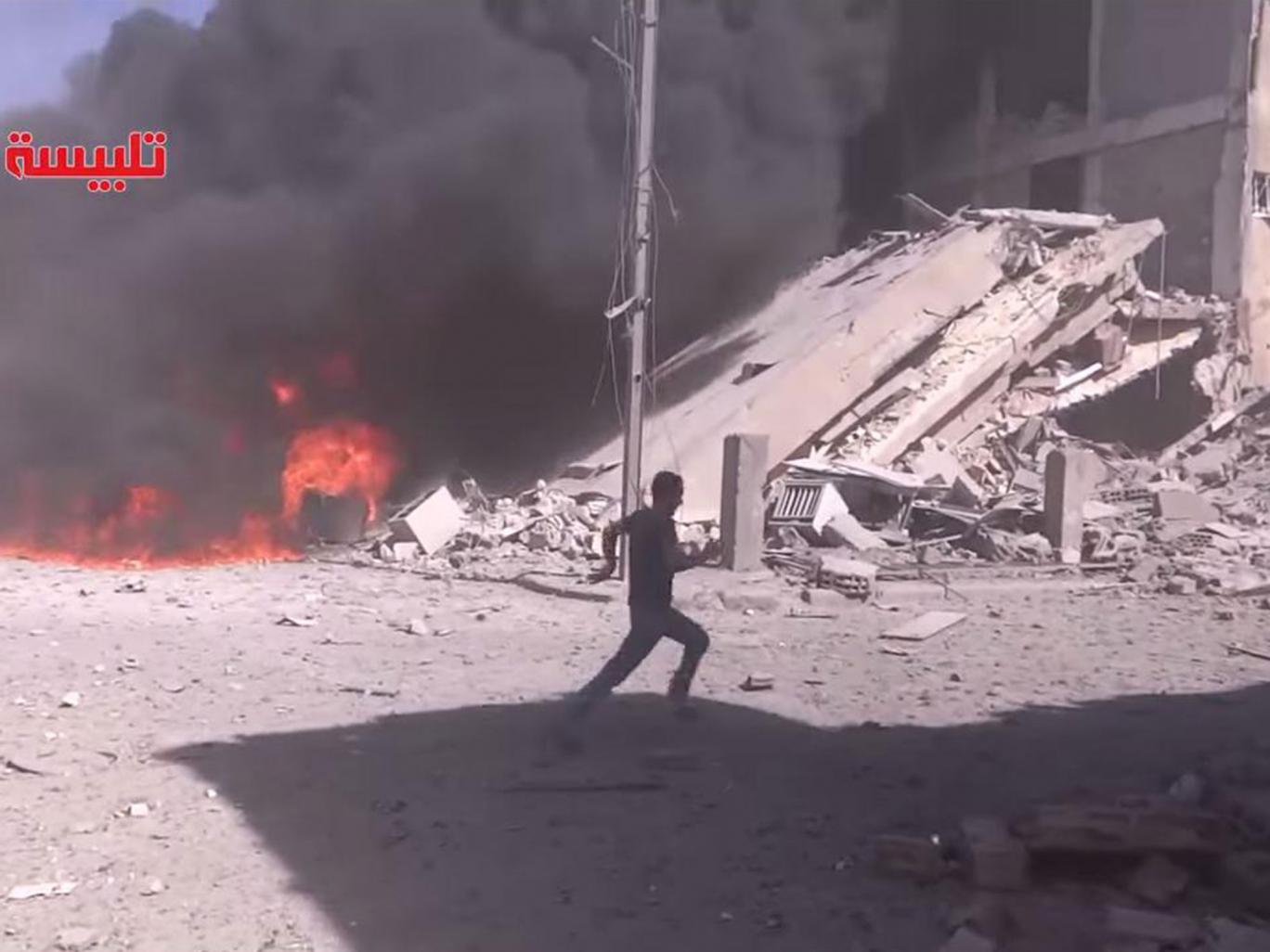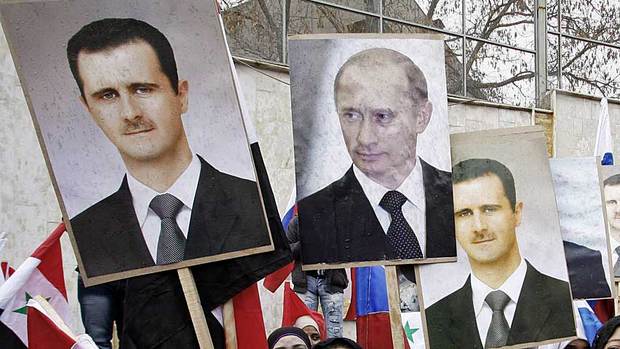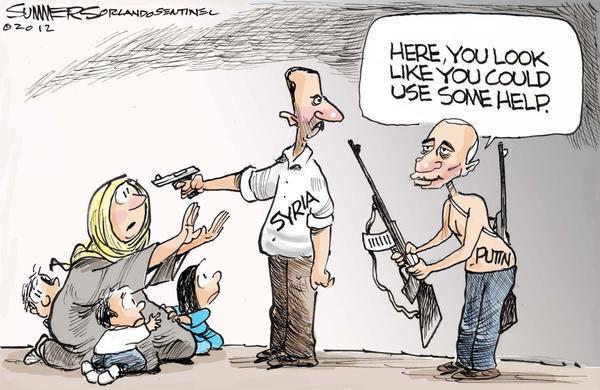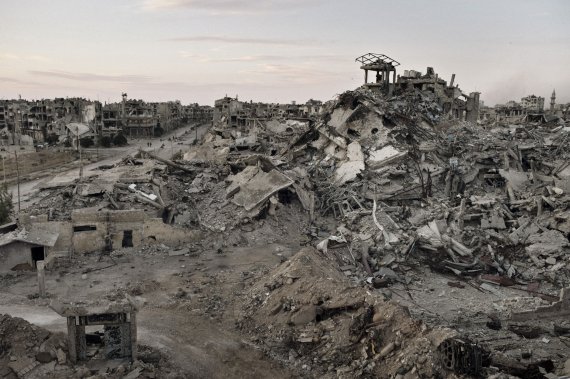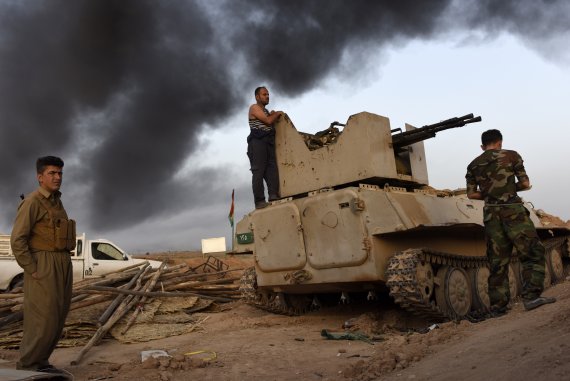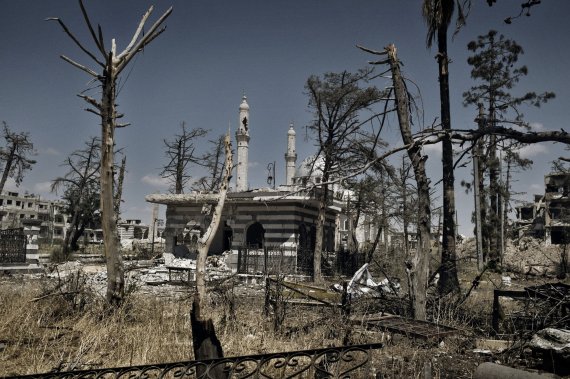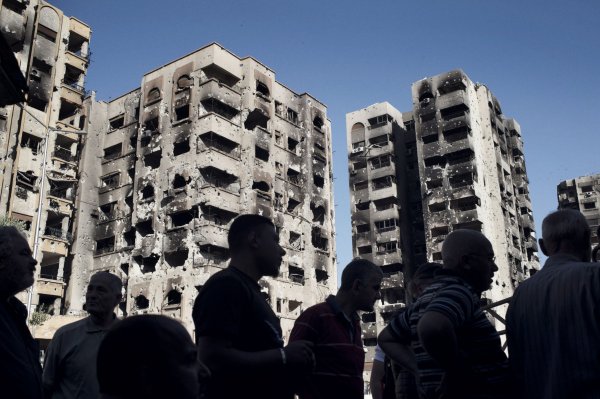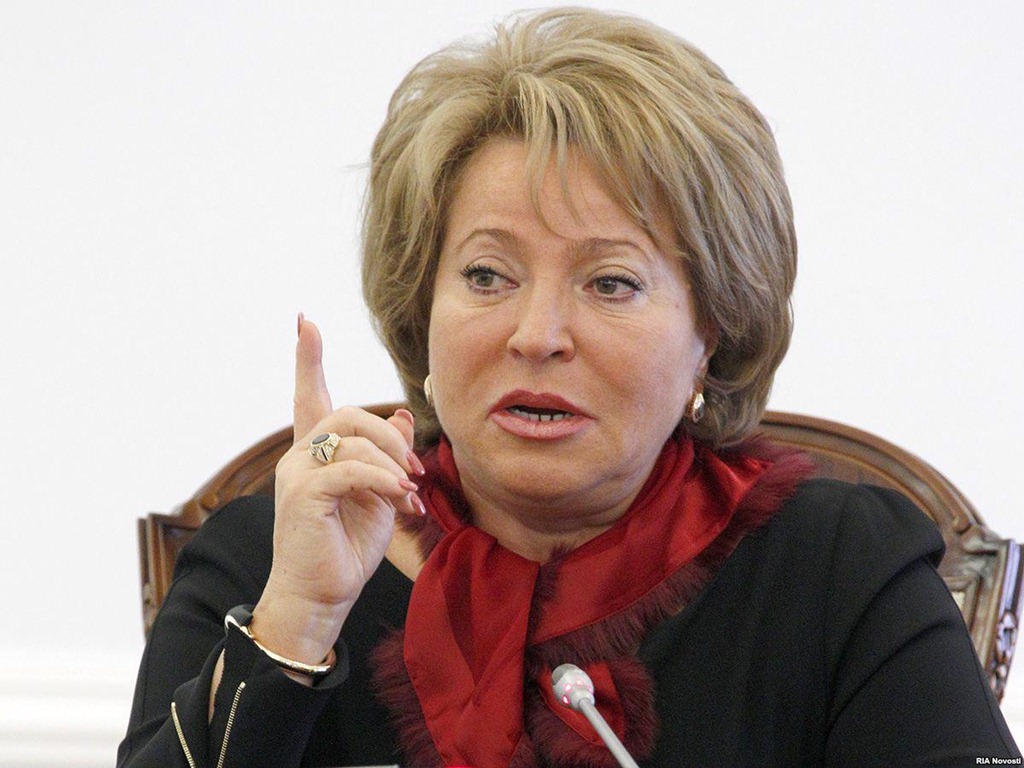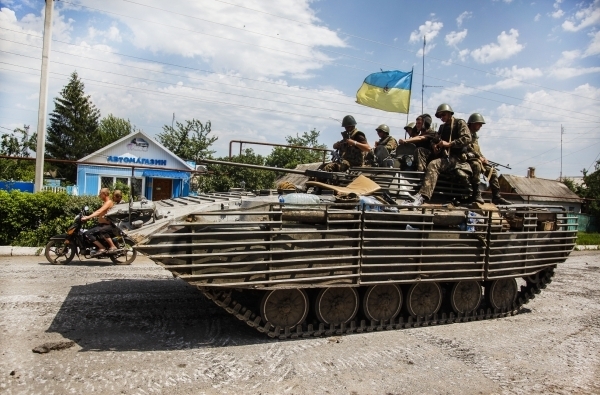Russian forces demonstrated their prowess in the destruction of the opponents of the Syrian regime of Bashar al-Assad, Russian Defense Minister Sergey Shoygu says; but ten kinds of Russian weaponry, especially those in high-tech sectors like cruise missiles and communications, did not perform well.
Shoygu’s comments came on Thursday at an expanded collegium of his ministry, at which Vladimir Putin also spoke, and were quickly overshadowed by the Kremlin leader’s claims that Russia is stronger than any potential aggressor and is modernizing its nuclear forces.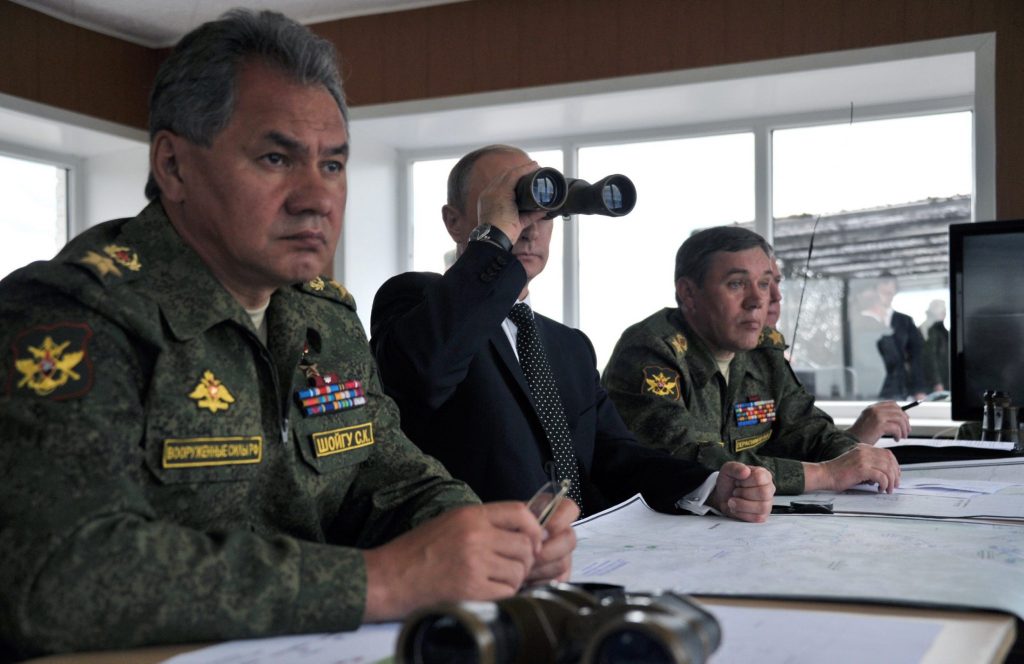
At that meeting, Putin said that “we must do a lot to strengthen the nuclear triad… do more with the navy… and perfect the systems of intelligence and communications.” But despite that, he added, he could “with confidence say that today we are stronger than any potential aggressor.”
That provoked a response by US State Department spokesman John Kirby that he “doesn’t think that in the entire history of humanity have there been armed forces… stronger than those of the United States at the present time.”
And that in turn led to another comment by Aleksey Pushkov, chairman of the Russian Federation Council’s Commission on Information Policy. In a Tweet, he said that “the State Department has called the US Armed Forces the strongest in history. But Iraq, Libya, and Afghanistan show the impotence of force: the US can win a war but then lose the peace.”
As this back and forth was taking place, an article in Warsaw’s Gazeta Polska suggested that the Russian army is “Potemkin”-like and less capable than many believe, an argument that a Russian commentator has now rejected with vigor.
The Polish analyst, Antoni Rybczyński, says that Moscow’s “lightning-fast annexation of Crimea, participation in the military operations in the Donbas and Syria, increases in defense spending, and orders for new weapons have all generated euphoria [in Russia] and serious concern in the West.”
“One might think,” he continues, “that Russia’s armed forces are a worthy opponent of the US and NATO.” But there are reasons to view the Russian military as less capable than many fear. The Russian military lags behind Western standards, but it can avoid the consequences of that when it is in a position to “choose the time and place of confrontation.”
For example, Rybczyński points out, many of the weapon systems Russia uses are out of date. “The modernization of the Russian army has always been based on Western ideas and technologies. Today, sanctions and the economic crisis are having their effect [and] especially backward is the sector of precision weaponry.”
Indeed, he continues, a major reason that Russian forces did so much damage to the Syrian city of Aleppo is that they were using “primitive arms” rather than the more precise ones that fill the arsenals of Western powers. Russia faces similar problems in other weapons sectors as well, including tanks.
“The only element of the arsenal in which Russian can compare with the US and which the Americans fear is nuclear arms,” a fear that is entirely justified but that does not necessarily determine outcomes on particular battlefields.
Not surprisingly, Svobodnaya pressa commentator Vladimir Tuchkov rejects all of Rybczyński’s contentions except the part about nuclear weapons. But he does so in the usual Russian manner of comparing gross numbers of categories of weapons like tanks, something where Russia has an advantage in numbers but not in technology.
Related:
- How bad are things in Russia? Children ask Grandfather Frost to sent them to the dentist
- Putin’s ‘achievement’ in Syria: now Russians the target for Muslim anger, Portnikov says
- A state of war exists between Russia and Ukraine, Portnikov says
- Western defeatism vis-a-vis Russia just as unjustified now as it was in 1979
- Russian pundit calls for Syria-style airstrikes against Ukraine
- Ukraine, Syria, and Putin
- Chechen and Afghan echoes of Putin’s military operation in Syria




